Getting a Mortgage with a Chapter 13 Bankruptcy in Indiana: What You Need to Know
If you’ve recently filed for Chapter 13 bankruptcy and are considering buying a home in Indiana, you might be wondering if it’s even possible to secure a mortgage. The short answer is yes, but it comes with specific steps and considerations. Chapter 13 bankruptcy, also known as a “wage earner’s plan,” allows individuals to repay their debts over time while retaining ownership of their property. It’s a useful tool for those who want to avoid foreclosure, but when it comes to obtaining a mortgage after bankruptcy, there are important factors to keep in mind.
This guide will walk you through the process of getting a mortgage with a Chapter 13 bankruptcy in Indiana, covering eligibility requirements, how long you must wait before applying for a mortgage, and how to increase your chances of approval. Plus, we’ll provide resources from trusted sites like ForeverHomeFinancing.com, VA.gov, and HUD.gov to help you get started.
Understanding Chapter 13 Bankruptcy
Before diving into the mortgage application process, it’s essential to understand how Chapter 13 bankruptcy works. Unlike Chapter 7 bankruptcy, which liquidates assets to pay off creditors, Chapter 13 allows individuals to reorganize their debt and repay it over a period of three to five years.
While in Chapter 13, you’ll make monthly payments to a bankruptcy trustee, who then distributes the funds to your creditors. Once your repayment plan is complete, any remaining eligible debts are discharged. Chapter 13 can help you stay in your home and protect your assets, which is crucial when applying for a mortgage after bankruptcy.
Can You Get a Mortgage with a Chapter 13 Bankruptcy in Indiana?
Yes, you can get a mortgage during or after a Chapter 13 bankruptcy, but the timeline and requirements vary depending on the type of loan you’re seeking.
Types of Mortgages Available for Chapter 13 Bankruptcy Filers
Several types of mortgage loans may be available to individuals with Chapter 13 bankruptcy in Indiana. These include:
1. Conventional Loans: These are loans offered by private lenders without government backing. Getting a conventional loan after Chapter 13 can be more challenging, but it’s not impossible if you meet specific criteria.
2. FHA Loans: Backed by the Federal Housing Administration, FHA loans are popular among people with less-than-perfect credit. FHA loans typically have more lenient requirements for those who have gone through bankruptcy. For Chapter 13 filers, you generally need to wait at least one year after filing before applying for an FHA loan.
3. VA Loans: If you’re a veteran or active-duty service member, you might qualify for a VA loan. VA loans are often easier to obtain than conventional loans because they are backed by the U.S. Department of Veterans Affairs. According to VA.gov, if you’re in a Chapter 13 repayment plan, you can apply for a VA loan if you’ve made at least 12 months of timely payments.
4. USDA Loans: The U.S. Department of Agriculture offers loans to individuals in rural areas. Similar to FHA loans, USDA loans have more relaxed credit requirements, which may make them a viable option for those with a Chapter 13 bankruptcy.
Key Requirements for Getting a Mortgage with a Chapter 13 Bankruptcy in Indiana
While there is no one-size-fits-all answer, there are several key requirements to be aware of when applying for a mortgage after a Chapter 13 bankruptcy:
1. Chapter 13 Discharge or Dismissal
Generally, most lenders require that you have completed your Chapter 13 bankruptcy plan (discharged) or have had your case dismissed before approving you for a mortgage. However, some loan programs may allow you to apply while still in the repayment phase, provided certain conditions are met.
For example, FHA and VA loans may allow you to apply while still in the Chapter 13 repayment period, but they typically require that you have made at least 12 months of consistent, on-time payments and that the bankruptcy court approves your mortgage application.
2. Timely Payments on Your Chapter 13 Plan
One of the most important factors in securing a mortgage with a Chapter 13 bankruptcy is your payment history. Lenders want to see that you’ve been making timely payments under your Chapter 13 plan. A track record of on-time payments demonstrates that you are financially responsible and capable of handling additional debt.
If you have missed payments, it may be more challenging to secure a mortgage. In such cases, you might want to reach out to a bankruptcy attorney or financial advisor for advice on how to proceed.
3. Credit Score and Debt-to-Income Ratio
Even if your Chapter 13 bankruptcy is recent, your credit score and debt-to-income (DTI) ratio will still play a significant role in the mortgage approval process. After bankruptcy, it’s essential to focus on rebuilding your credit score by paying bills on time and reducing outstanding debts.
For most loan programs, a credit score of at least 620 is required. However, some lenders may be more flexible, especially for FHA or VA loans.
Your DTI ratio, which is the percentage of your income that goes toward debt payments, should generally be below 43%. If your DTI ratio is too high, you may need to pay down some existing debt before applying for a mortgage.
4. Documenting Your Income
You will also need to provide proof of income when applying for a mortgage. Lenders will want to see that you have a steady, reliable source of income to ensure you can afford the monthly mortgage payments. This documentation may include pay stubs, tax returns, or bank statements.
If you’ve recently been promoted or experienced a change in income since filing for bankruptcy, it’s important to show that your financial situation is stable and improving.
5. Bankruptcy Court Approval
Some lenders may require that you get approval from the bankruptcy court before applying for a mortgage, especially if you’re still in the repayment phase of Chapter 13. The court will review your financial situation and approve or deny the request based on your ability to take on additional debt.
This step is particularly important for government-backed loans, such as FHA or VA loans, which have strict guidelines about borrower financial stability.
Steps to Take When Applying for a Mortgage with a Chapter 13 Bankruptcy in Indiana
Step 1: Check Your Credit Score
After filing for Chapter 13 bankruptcy, it’s essential to monitor your credit score and work on rebuilding it. Start by obtaining a free copy of your credit report and reviewing it for any inaccuracies. You can get your credit report from major agencies like Experian, Equifax, and TransUnion.
The goal is to bring your score up to at least 620 to increase your chances of mortgage approval.
Step 2: Make Timely Payments on Your Chapter 13 Plan
To improve your chances of securing a mortgage, ensure that you make all Chapter 13 payments on time. Lenders will want to see that you have been following your repayment plan, and missing payments can significantly harm your chances of getting approved.
Step 3: Save for a Down Payment
In many cases, you’ll need to provide a down payment when purchasing a home. While down payment requirements vary by loan type, a typical range is between 3% to 20%. For example, FHA loans may require as little as 3.5%, while conventional loans might ask for 5% or more.
The more you can save for a down payment, the better your chances of getting approved, as it demonstrates financial responsibility.
Step 4: Consult with a Mortgage Professional
The mortgage process can be complex, especially when dealing with a Chapter 13 bankruptcy. It’s highly recommended to consult with a mortgage professional who is experienced in working with individuals who have a bankruptcy on their record. They can help you navigate the application process, find the best loan options for your situation, and provide advice on how to improve your chances of approval.
For more information about mortgage options, you can visit ForeverHomeFinancing.com.
Step 5: Explore Government Programs
If you are a veteran, you may qualify for a VA loan. Visit VA.gov to learn more about VA loan eligibility and benefits. Additionally, for general assistance with housing and financial recovery, HUD.gov offers resources on homeownership programs and foreclosure prevention.
Conclusion
While securing a mortgage after a Chapter 13 bankruptcy can be challenging, it is entirely possible. By following the steps outlined in this guide and meeting the necessary criteria, you can increase your chances of becoming a homeowner again. Be patient, work on rebuilding your credit, and consult with professionals to guide you through the process.
For more information and personalized advice, visit resources like ForeverHomeFinancing.com, VA.gov, and HUD.gov to help you navigate your journey toward homeownership.

